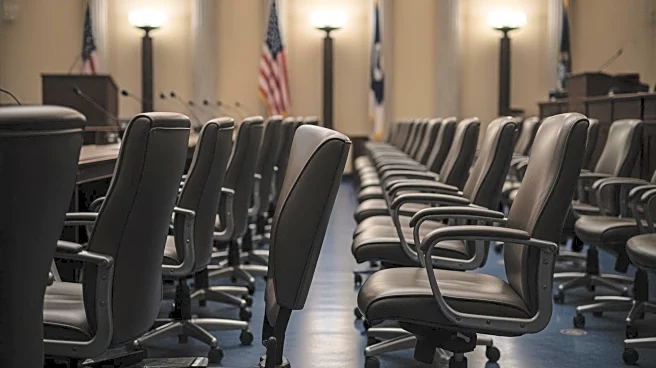What's Happening?
The U.S. government shutdown has reached its 14th day, with the Senate returning to Washington to address the impasse. The shutdown, caused by disagreements over budget allocations and policy priorities,
has led to disruptions in government services and operations. Lawmakers are under pressure to negotiate a resolution to restore normalcy and prevent further economic and social impacts.
Why It's Important?
The prolonged shutdown affects various sectors, including federal employees, government contractors, and public services. It highlights the challenges in achieving bipartisan cooperation and the consequences of political gridlock. The economic impact could be significant, affecting consumer confidence and market stability. Stakeholders, including businesses and citizens, are closely monitoring developments for signs of resolution.
What's Next?
Negotiations are expected to continue as lawmakers seek a compromise to end the shutdown. The outcome will depend on the ability of political leaders to bridge differences and prioritize national interests. The situation may prompt discussions on long-term solutions to prevent future shutdowns and improve legislative processes.









